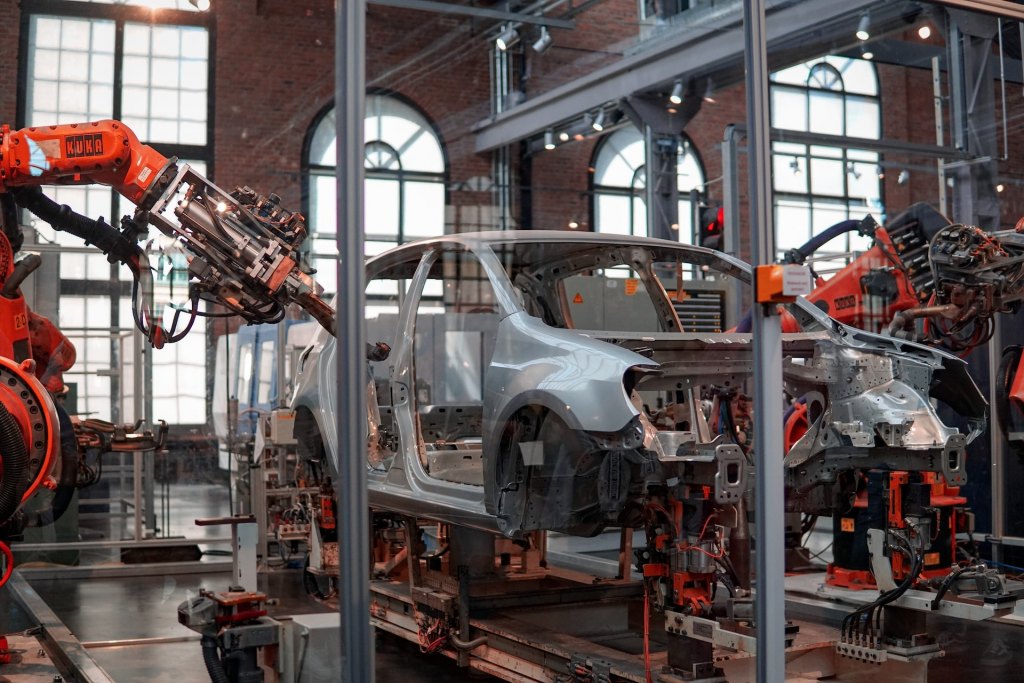
Source: Unsplash
As the energy crisis in Europe rages on, businesses in energy-intensive industries are calling for significant legislative action to address the issue. The automotive industry, in particular, is at risk of not being able to keep its production lines running due to rising energy prices and production costs.
The predicament has led five European industry associations to sound the alarm in Brussels this week for political action to support the EU’s automotive industry. The group made the call for support amid worries that the industry will become more dependent on imports and lose its competitiveness to markets like the United States and China.
The five associations are the European Automobile Manufacturers’ Association (ACEA), the European Association of Automotive Suppliers (CLEPA), the European Council for Motor Trades and Repairs (CECRA), the European Tyre & Rubber Manufacturers’ Association (ETRMA), and the European Tech & Industry Employers (CEEMET).
Pressures on Automotive Manufacturing
Before the energy crisis, the prices of gas and electricity were inconsequential to European automobile production. The industry had to worry about other regional events like the 2011 Japan earthquake and tsunami and the COVID-19 pandemic.
The earthquake disaster caused supply shortages of mass-airflow sensors, microcontrollers, Xirallic paint pigments, and other parts for cars assembled elsewhere. Meanwhile, the pandemic significantly affected the supply of semiconductors. Both events consequently led to raw material price increases.
This time, the Russian invasion of Ukraine and the energy scarcity that resulted from it, are placing even more intense pressure on the European automotive supply chain. Energy costs as a component of a vehicle’s bill of materials were typically €50 per vehicle before the crisis. Industry experts today estimate the energy cost increases to be between €687 to €773 per vehicle. These are costs that will be hard to pass on to consumers who are also confronted with rising inflation; thus further undermining margins for the auto industry.
Saving Energy Through Manufacturing Software and Smart Technologies
While Europe is turning to other sources of energy (Norway has become the European Union’s leading natural gas supplier), automobile manufacturers are also finding ingenious ways to reduce their energy consumption. French car producer, Renault, for instance, is reducing the time it keeps paint warm during production. On the other hand, German brands like Mercedes-Benz, Volkswagen, and BMW are turning to renewable energy to reduce their dependence on fossil fuel-driven energy.
Aside from these strategies, software and technologies used in smart factories are also playing their part in helping the industry save on energy costs. Manufacturing software used in equipment management, for example, can provide visibility on the energy consumption of industrial machinery. With data on how, when, and where energy is used, manufacturers can identify processes that could still be improved and make adjustments that could cut their energy bills.
Moreover, manufacturing software that includes predictive analytics help manufacturers identify machines that need maintenance. Regular and prompt maintenance can prevent situations where equipment sucks up more energy than it normally does.
Integration with Enterprise Apps and IoT Devices
Companies can also integrate equipment monitoring software with ERP software for manufacturing to remove siloes, monitor other operations like shop floor management and resource planning, and optimize production. For example, manufacturers like Mercedes-Benz and the Spanish manufacturer of car body shells, Gestamp are using cloud-based software and data analytics in their digital production ecosystems.
A case study on Gestamp showed that its cloud-based energy management platform helped its 14 European factories slash their energy consumption by 15%. Mercedes-Benz, for its part, recently announced its new data platform connecting around 30 plants that could make vehicle production more efficient. As more businesses in manufacturing integrate software into their processes, analysts estimate that the market could reach $99.5 billion by 2026.
Other technologies like IoT devices can also help car manufacturers cut energy costs through automation. Production floors equipped with sensors, for example, can provide automatic controls for lighting and indoor temperature. Together with IoT SaaS apps, sensors can also help contextualize complex process data. This can assist manufacturers in identifying which parts of their operations are most energy-dependent.
With all these benefits in mind, technology alone will still not completely solve the European energy conundrum. It will require a combination of political and economic strategies. No one knows what will happen in the long term since a lot depends on how the Russia-Ukraine war unfolds. But for now, software and technology do provide automobile manufacturers with ways to further cut energy costs and get through the wet and cold European winter.





















Leave a comment!